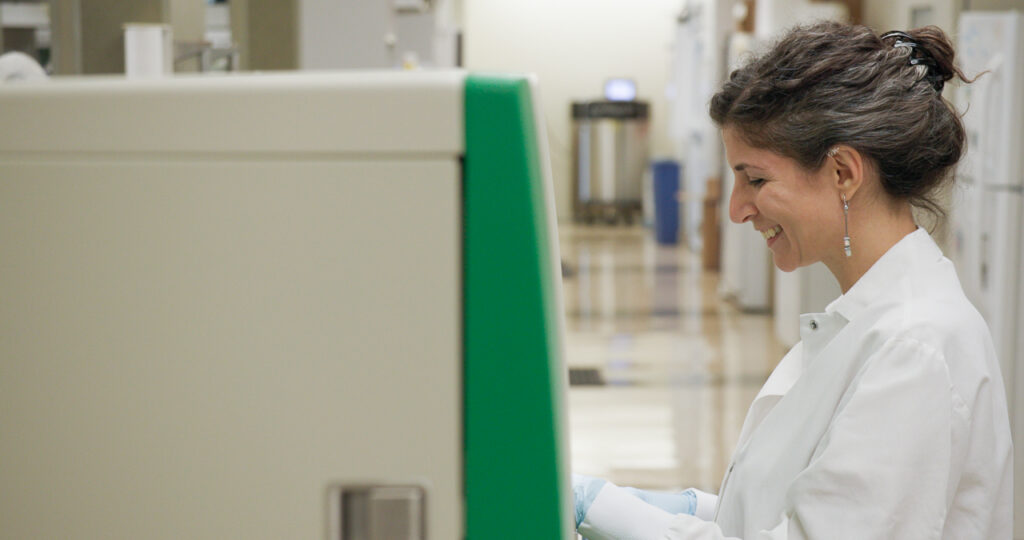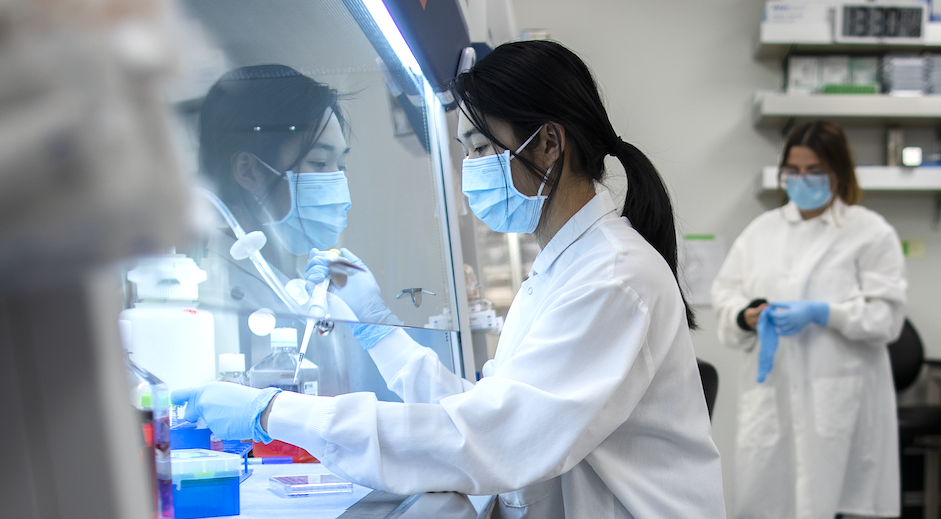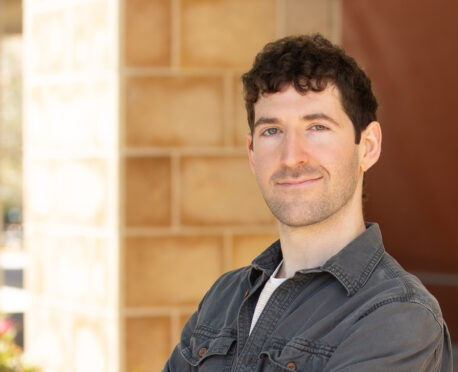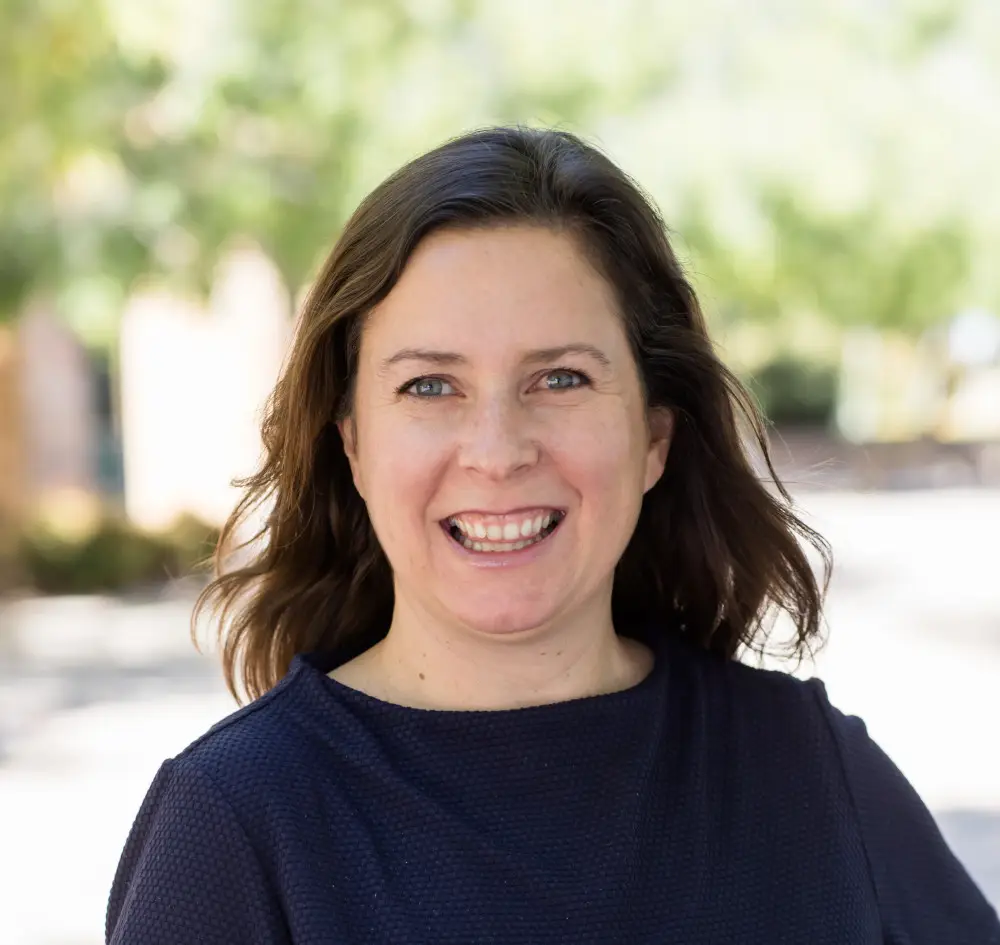
LA JOLLA—Seven researchers at La Jolla Institute for Immunology (LJI) have been named to the 2022 Highly Cited List, released today by Clarivate. This distinction recognizes scientists whose papers have ranked in the top 1% of citations for their field of study between 2010 and 2020.
LJI scientists on the 2022 Highly Cited List include Professor Shane Crotty, Ph.D., Bioinformatics Core Director Jason Greenbaum, Ph.D., Instructor Alba Grifoni, Ph.D., Professor Bjoern Peters, Ph.D., Professor Alessandro Sette, Dr.Biol.Sci., Senior Staff Scientist John Sidney, and Research Assistant Professor Daniela Weiskopf, Ph.D.
“It’s striking to see the number of LJI scientists that have achieved this level of recognition,” says Sette. “This speaks to the overall caliber of contributions to research here—and our diverse areas of expertise. LJI research is not only of great quality but is also impactful because people read it and cite it in their work.”
Crotty, Peters, and Sette have been named to the list several years in a row. This is the second year on the list for Sidney and the first time on the list for Greenbaum, Grifoni, and Weiskopf.
“I couldn’t believe I made the list this year,” says Grifoni. “I knew our work on COVID-19 was important, but I’m just an Instructor. Considering my early position, it’s quite an achievement.”
“To me, the Highly Cited List is the biggest acknowledgement you can earn for your work, as this reflects that people are actually reading and citing your work,” adds Weiskopf.
How early career researchers propelled COVID-19 breakthroughs
For Weiskopf and Grifoni, being named to the Highly Cited List reflects the global impact of their COVID-19 research. Going into 2020, Weiskopf was about to start her own LJI laboratory—and already had funding for dengue, Zika virus and chikungunya research—and Grifoni was a member of the Sette Lab, studying immune responses to pathogens like Zika virus and dengue.
Their expertise in T cell responses meant the two quickly shifted to working closely with Sette to analyze SARS-CoV-2 epitopes—molecular targets where the immune system can target the virus—before COVID-19 was even declared a global pandemic. This collaboration, alongside the Crotty Lab, gave scientists worldwide hope that a SARS-CoV-2 vaccine could be possible. [From March 2020: LJI scientists identify potential targets for immune responses to novel coronavirus]
Follow-up research showed the importance of T cell cross-reactivity to common cold coronaviruses and the overall importance of T cells in forming an effective defense against and memory of the virus. Their research has been regularly cited in Congress and the media by NIAID Director Anthony Fauci, M.D.
In this time, Grifoni has been promoted to Instructor at LJI and won international accolades. Weiskopf has won additional, highly competitive funding awards including one for SARS-CoV-2.
“Alex Sette, Shane Crotty, and I teamed up early in the pandemic and have been publishing nonstop together for three years, and I’m very proud of this work,” says Weiskopf. “Our COVID-19 research answered many questions people had, and I think that’s why it was highly cited.”
“So much research at LJI is highly collaborative,” adds Crotty. “It’s great to have work cited and to be named to the list, and it’s even better to see research partners recognized for their hard work.”
LJI as an vaccine research and data science powerhouse
Crotty, Peters, and Sette continue to drive immunology forward with new research into immune cell memory, T cell responses, and bioinformatics approaches.
Crotty is an expert in vaccine design, and his work has shed light on immune cell memory and the best strategies for targeting pathogens like HIV and SARS-CoV-2. [Learn more: The longer the bootcamp, the better the antibodies] Over the last three years, his COVID-19 work has made headlines as he showed the power of immune cell memory of the SARS-CoV-2 virus and the lasting efficacy of COVID-19 vaccines.
Peters is a bioinformatics leader whose work brings together bench scientists and data scientists to advance infectious disease research, cancer research, and more. Sette is a world-renowned expert in T cell responses. His research, which includes Highly Cited List member Sidney, is critical for understanding how T cells find their targets and has informed new therapeutic strategies and responses to emerging pathogens.
Together, Peters and Sette have made LJI a data science powerhouse. Since 2004, they have spearheaded data curation and tool development for the Immune Epitope Database and Analysis Resource (IEDB). In 2021, they established the Cancer Epitope Database and Analysis Resource (CEDAR). Peters also recently took the helm of the NIAID-funded Human Immunology Project Consortium Data Coordinating Center, a critical tool in the effort to fuel scientific collaboration in immunoprofiling and highlight findings from the overall Human Immunology Project Consortium (HIPC).
As the LJI Bioinformatics Core Director, Greenbaum’s work is key to making sure these databases and resources stay up-to-date. He also helps maintain the Bioinformatics Core, which powers the Database of Immune Cell Epigenomics (DICE) and the Coronavirus Immunotherapy Consortium (CoVIC) database, a global resource for scientists developing life-saving antibody therapies against COVID-19.
“The Bioinformatics Core works with so many people within the Institute and outside the Institute, so placement on the Highly Cited List is really a testament to the people I work with,” says Greenbaum.
Handling these “big data” projects is a tall order as more and more studies rely on high throughput genome sequencing and analysis. Still, Greenbaum’s team makes sure these tools in immunology remain current and free to use. “Our goal is to develop user-friendly tools that make complex science easier,” says Greenbaum.
Learn more about the Highly Cited List
###





